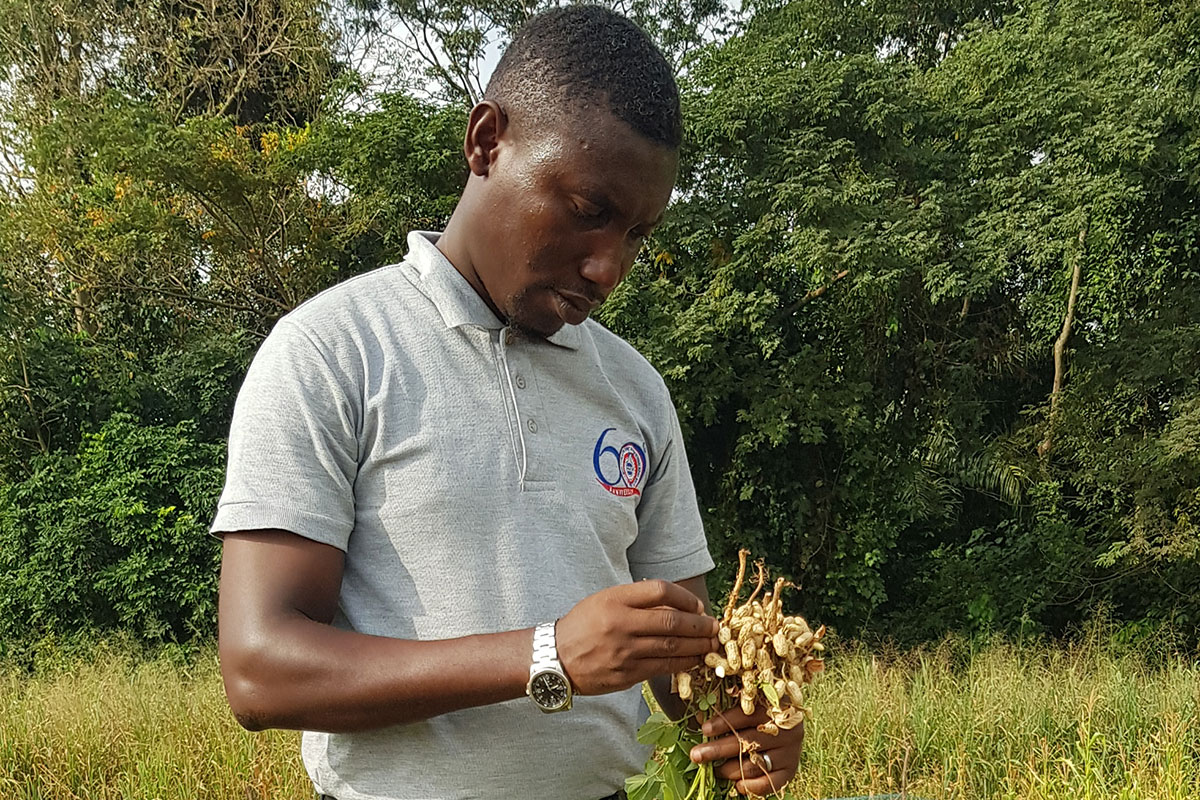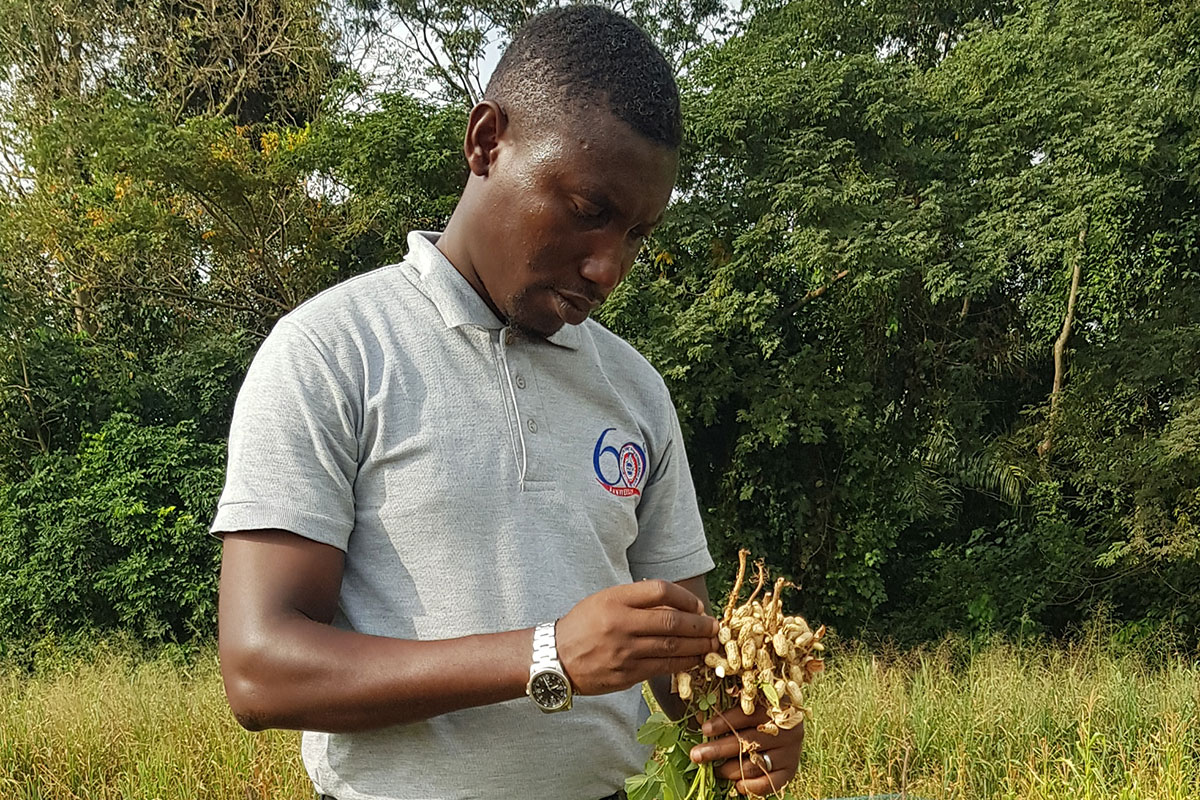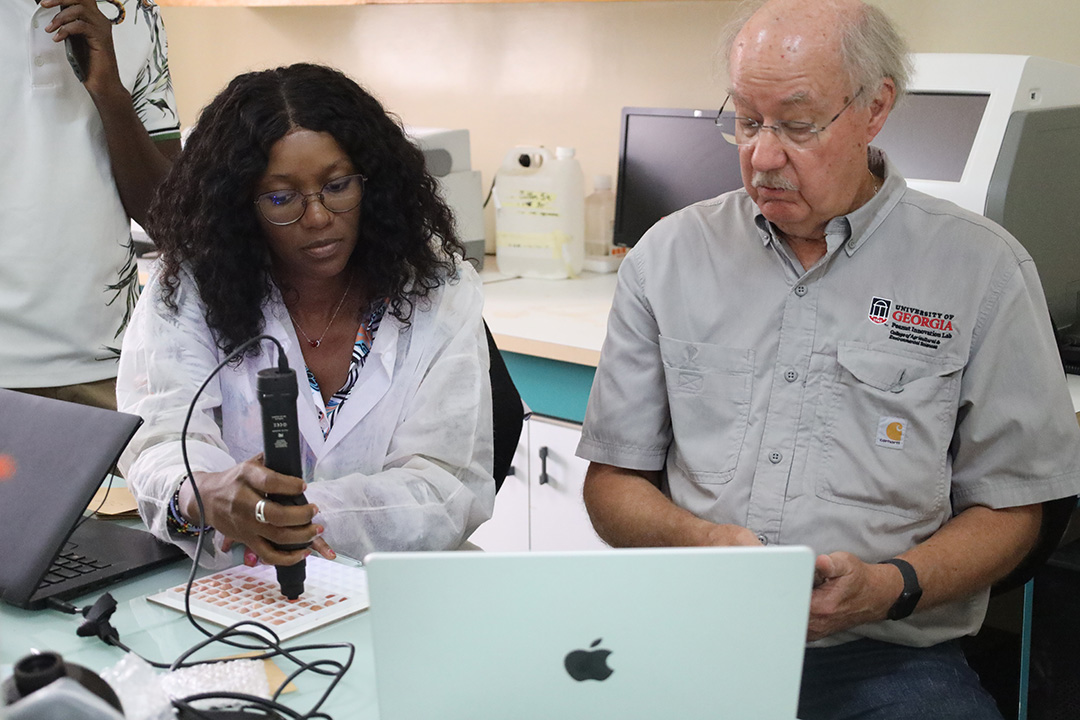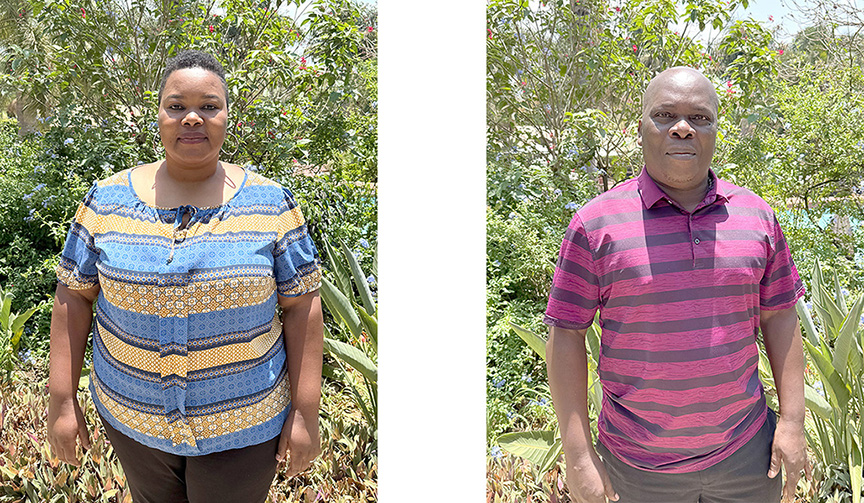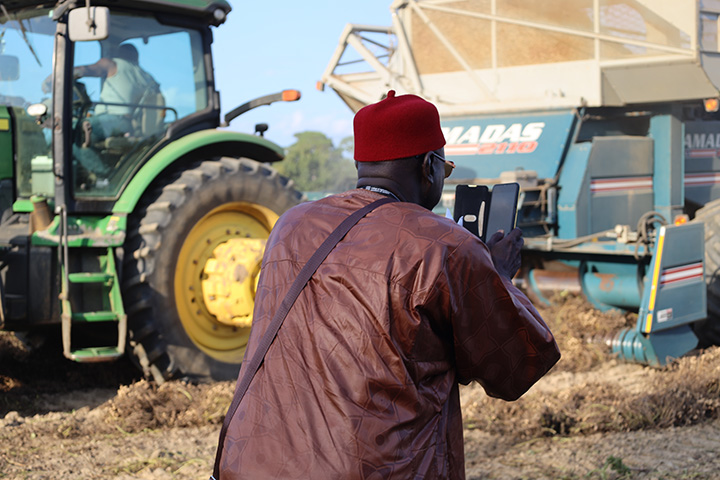Stephen Arthur is passionate about crop management. For every problem, there is an answer, he says, but giving just one bit of advice won’t help a farmer manage his crop as well as providing him a big picture.
“Some farmers may have issues with good seed. Some may have issues with weed management. Some have issues with disease management. Recommendations have been made in these areas, but usually those are just for a single problem, without looking at the entire system,” said Arthur. “My work helps to look at those recommendations in packages. How will several interventions work together to give a farmer the best outcome for his challenges and level of investment?”
Arthur has worked with the Feed the Future Innovation Lab for Peanut for several years, first as a master’s student funded through the Peanut & Mycotoxin Innovation Lab and today as a PhD student working on a project creating production packages for Ghanaian groundnut farmers.
Through his master’s degree research, Arthur tracked how fungicide and herbicide interact to give better yields, as well as the cost benefit of using those inputs. Now working on a PhD through Kwame Nkrumah University of Science and Technology (KNUST), he’s tracking how these pest management practices work in coordination with other investment and in rotation systems.
The research documents how cropping sequence – such as groundnut, followed by maize – responds to a range of production practices. Results will be used to recommend agronomic practices to farmers based on previous cropping history.
The recommendations are broken into practical programs – a low input package that would be the most many smallholder farmers could invest, a moderate input program that would include some financial investment, and a high input system that includes the very best practices.
But the recommendations also include different approaches to the same problem. A farmer may not have the cash to apply an herbicide but could afford to add an additional manual weeding.
Ultimately, the analysis will consider a farmer’s time, as well as the financial investment.
“How much time am I putting in if I do one herbicide application along with a manual weeding? These scenarios are important to consider, along with the financial investment and economic return, in order to give a good recommendation,” Arthur said.
Working on research plots in the upper west region around Wa, Arthur fielded questions from farmers in the community who saw the practices he tested and inquired about the benefits.
“That’s the whole idea, to be able to provide evidence that farmers can use to weigh their own practices and the potential benefits,” he said.
Arthur has always wanted to work with farmers ... always.
He completed his undergraduate degree in agriculture in 2011 and did his national service as a teaching assistant. That experience showed him how much he enjoyed teaching. In 2012, he went to work for the Crops Research Institute (CRI), a part of the Council for Scientific and Industrial Research, and continued his studies.
It wasn’t the path his dad, who is an electrical engineer, expected for him.
“He always assumed I would go into electrical works, but I had the love for agriculture,” Arthur said. “As a kid, I was working in our backyard, growing okra and maize and groundnuts – and just lots of vegetables cooked in our kitchen. I wanted to become an agriculturalist, but I started to become an electrician,” he said.
Eventually, his dad relented.
“One of the things that convinced him was my report cards,” he joked. Teachers repeatedly found his strengths to be in agriculture, mathematics, and science.
“In junior high school, when teachers would ask what we wanted to be one day, my friends would say ‘journalist’ or ‘doctor,’ but I always said, ‘a cooperative extension agent. I want to have a motorbike and visit farmers.’”
With a childhood dream to become an extension agent, experience as a teaching assistant at the college level and nearly a decade of graduate research experience, Arthur has options when he graduates.
But, he rejects the idea that he has to choose the field or the classroom, or pick between extension with farmers or research in a lab. He expects to do all of it.
“We really have a need in Ghana for more weed scientists. There only are about 10 in the country. The best thing for me to do is to continue to do research in this area and when students in the classroom have a need, I will take that up,” he said. CSIR has offered graduate degree programmes for five years, integrating Arthur’s passions – research and teaching – into one organization.
He is scheduled to complete his PhD in 2022.

